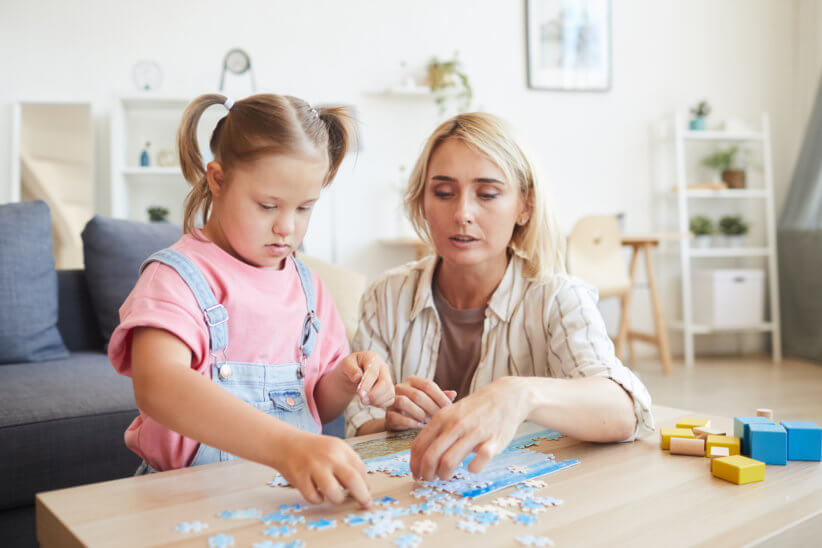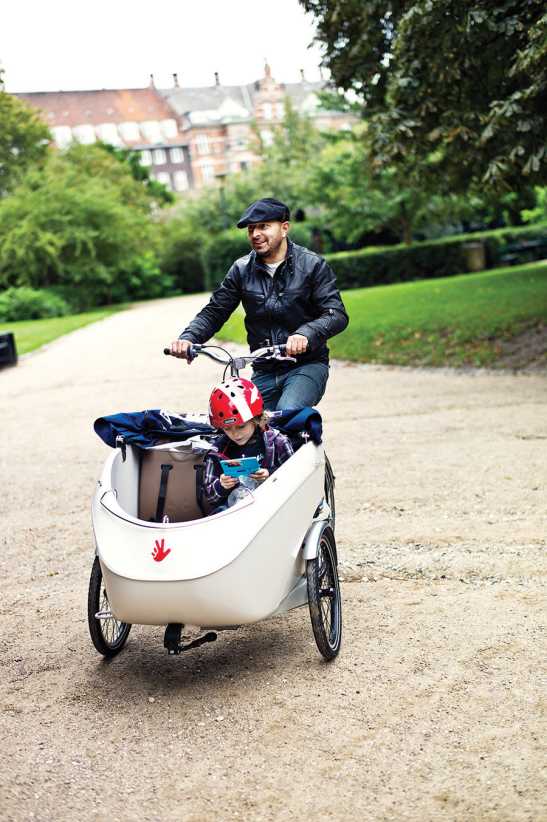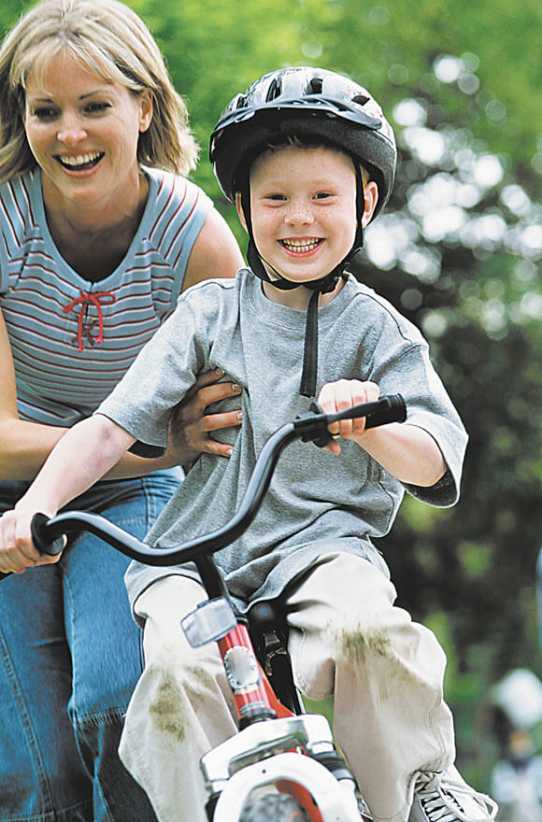
Next Steps: What To Do After Your Child Gets Diagnosed With a Developmental Disability
If your child was recently diagnosed with Autism or another developmental disability, there’s probably a million things going through your head right now. Who should you contact? Do you need to change schools? Are there NYC programs that will help? We know how stressful and confusing this experience can be for parents. That’s why, we chatted with Lori Podvesker, Director of Disability and Education Policy at INCLUDEnyc and mother of a 19-year-old son with developmental disabilities, to learn more about NYC resources and support systems that might help you better navigate your situation.
The key takeaway? You’re not alone. “The one thing that’s universal is that feeling of being alone, which is rooted in fear, and what you are going to do…There’s a lot of shame, there’s a lot of stigma,” says Podvesker. You may feel like you’re all by yourself at first, and perhaps you’re hesitant to tell other people outside your family because of the (problematic) stigmas and stereotypes surrounding disability. But we’re here to remind you that other families are feeling what you are feeling. Every experience is unique, but you are certainly not alone in your journey.
Read on to learn more about the next steps after your child gets diagnosed with Autism or another developmental disability.
Give yourself time to process
A diagnosis is a lot to process as a parent— it weighs on you mentally, so be sure to take the time to wrap your head around it. Before you jump into learning the medical terms or deciding on therapies, take care of yourself and your relationship to your child. Podvesker explains: “It’s an ongoing process. It’s grieving, if you want to know the truth. I think at first, it’s like if you’ve ever had your heart broken. You kind of can’t believe it and you don’t know what to make of it, and I think that’s pretty common for most people.”
Feeling shock, grief, and denial is perfectly normal, so let yourself understand these feelings towards the diagnosis, talk about them, and process them before you take action. In Autism Speaks’ “A Parent’s Guide to Autism”, Kimberlee Rutan McCafferty, mother of two sons on the Autism spectrum and an Autism Family Partner at the Children’s Hospital of Philadelphia, recommends: “I can’t stress this one enough – take care of yourself, not just your kid. Autism is a marathon, not a sprint. You owe it to yourself and your child to be whole, healthy, and happy.” Take care of your mind and body not just during the initial stages of understanding the diagnosis, but throughout the journey.
Don’t think too far ahead
While it’s necessary to plan ahead for children with developmental disabilities, you also can’t look too far into the future. “No doctor is going to tell you the prognosis,” says Podvesker. “That’s the hardest part. Once you get a diagnosis, you know the ‘it’ but you don’t know ‘what’ — what do we know now and what will it look like 5 years from now?”
There is no one-size-fits-all for Autism and other developmental disabilities, so doctors have no way of knowing how your child will progress over the years. It’s natural to want to know, but “it’s not until time goes on that you see how things play out, that your family is going to be okay no matter what, but that takes time,” adds Podvesker. So focus on the present resources to help your child develop, learn, and grow, and try not to worry too much about (quite yet) about their later childhood or adult life.
Talk with your family
It is essential that you open up the conversation with your immediate family, whether that’s your partner or other children. You are all in this together, and everyone needs to be on the same page to best support your child with disabilities. “Many families are in denial at first. Dads may not see things the same as moms,” says Podvesker. If you have a partner, make sure to give each other time and space to process, and then discuss how each other are feeling, what you’re thinking, and how you’d like to move forward. Autism Speaks’ “A Parent’s Guide to Autism” says: “You and your spouse may not react to your child’s diagnosis in the same way, but try to explain how you feel and listen carefully as your spouse shares his or her feelings as well.”
Podvesker also explains how your situation can look different if you have more than one child. The family dynamic will likely shift, and it’s important that you not only learn how to parent a child with disabilities, but how to parent all of your children together. Autism Speaks’ “A Parent’s Guide to Autism” explains: “So much focus and attention is placed on the child with Autism, that it is common for parents to have little time or energy left to focus on their other children.” The guide suggests that you help your other children understand Autism with kid-friendly books and conversations. It also recommends teaching your kids how to play and interact with your child with Autism so that they can form a safe, loving, and genuine relationship.
Research schools to find the best fit
School is probably top of mind right now, because we all want our kids to have the best education they can. Especially for kids with disabilities, finding a school that supports your child’s needs is key for their growth and development. Podvesker recommends prioritizing: “For us, Jack is mostly nonverbal, so having a speech therapist was always a #1 or #2 priority.” Other factors you might consider, Podvesker mentions, are whether you want all your children to go to school together, what kind of school culture you’re looking for, and if the school will support the highest-priority needs of your child, whether that be socialization, speech, etc.
If possible with your family’s schedule, explore schools outside your neighborhood, because there may be a better fit that’s a little further away. “When Jack was in first grade, he went to an approved private school. We live in Clinton Hill, Brooklyn, and he went to school in Long Island, 22 miles away. We weren’t thrilled about how far away it was, but the quality of the program was worth it for us,” explains Podvesker.
It’s also okay not to know what kind of school you want for your child. After all, the research can take a lot of time and energy. “Many families don’t know what they want other than their kid to be educated, safe, and happy,” says Podvesker. “Meetings happen, recommendations are made, and that’s when families reach out to organizations like us (INCLUDEnyc) to help them navigate.” If this is the case for your family, consider reaching out to a support organization or network, whether that be INCLUDEnyc, local support groups (see below), or your network of friends and family.
Join a support group
“The value of parents connecting with other parents is like nothing else,” says Podvesker. There are a number of support groups for parents of children with disabilities throughout NYC, and many of them are specific to the disability. Podvesker explains how support groups may help your family navigate raising a child with disabilities: “There’s not only the perspective, but the lived experience when you talk with another family…There’s so much value in community. Parents share what strategies have worked, what schools they’ve had bad experiences at, what dentist to go to that’s good for young kids with sensory issues.” Connecting with parents will not only provide you with inside knowledge about the do’s and don’ts, but it will remind you that you are not alone in your journey.
Every family’s situation is different, so you should seek out a support group that best represents your own needs and priorities as a parent of a child with disabilities. “Cultural factors play into that,” says Podvesker. “We have the most amazing caregiver. Her daughter is 3 and was recently diagnosed to be on the spectrum, and I think: what is it like to be black, female, low income, and Autisic? That’s very different than if you’re a white boy from the Upper East Side who’s just been diagnosed with Autism.” Raising a child with disabilities is not a universal experience— there are many factors that influence what that looks like. That’s why, we recommend exploring a few different support groups to find the one where you feel like you can relate and learn the most.
You can also hop on social media to connect with other families– there are Facebook groups, Twitter threads, TikTok accounts, Instagram mommy influencers, and more. Of course, be careful not to believe everything you see here, but in our digital world, it’s now easier than ever to find and connect with the people we need.
Try different at-home activities
Outside of therapy sessions, there are at-home activities that you can try. Some of these may be recommended by your child’s doctor, specialist, or educator, but you can also get creative on your own. Whether it be arts & crafts, storytime, science experiments, or outdoor action, explore activities that you think your child may like. When planning activities, it’s best to create a daily schedule so that your child can have consistency and structure. INCLUDEnyc has a detailed guide for creating a schedule that may help you plan out your child’s days.
Learn the vocabulary
Although not something you should worry about right away, eventually it will make your process easier if you familiarize yourself with some of the medical jargon. New York Family’s glossary for families of kids with disabilities will help catch you up on the terms to know. “Navigating that stuff while simultaneously learning who your kid is is not easy,” says Podvesker. Between emotionally processing the diagnosis and being introduced to a plethora of educational and therapeutic options, it can be overwhelming to hear terms you don’t know. If you don’t have a ton of time to learn them, bring a printout of the glossary to your child’s doctor’s appointments as a cheat sheet!
Seek out funding
Funding is often a primary concern for families of kids with disabilities, but there are several resources available to you. OPWDD offers funding for services for New York residents with disabilities. NYC Health also provides a helpful guide (pages 77-82) to charities and family reimbursement programs that will assist with related costs. “A Parent’s Guide to Autism” recommends, if you have healthcare, to look into how your medical insurance may reimburse you for therapy and treatment.
We hope this guide gets you started in your journey. Remember— you are not alone.






















